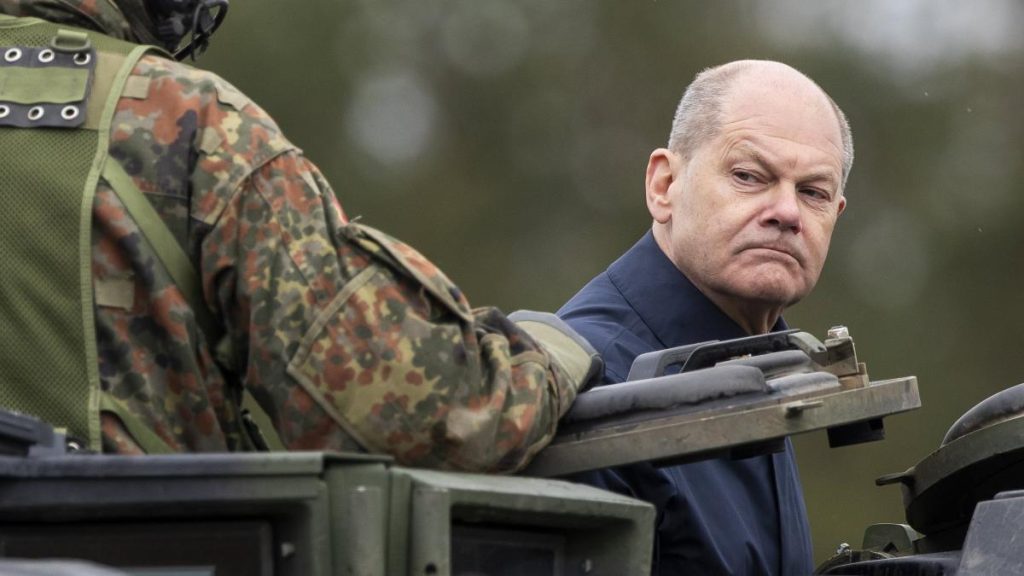German Chancellor Olaf Scholz visited a military training ground near Vilnius in Lithuania, where he met with soldiers of the 10th Panzer Division. Lithuanian President Gitanas Nausėda welcomed Scholz in cold, windy, and rainy weather, highlighting the strong friendship and collaboration between Germany and the Baltic States. Nausėda thanked Germany for its contribution to strengthening and defending Lithuania, specifically mentioning the decision to permanently station a brigade in the country as a testament to strong leadership and commitment to collective defense.
The permanent stationing of German Bundeswehr soldiers in Lithuania has been a topic of discussion for months, with preparations now underway. A pre-command of about 20 people was sent on April 8, expected to grow to approximately 150 personnel by the fourth quarter of 2024. By the end of 2027, around 5000 soldiers are planned to be permanently stationed in Lithuania. The costs for this deployment could surpass ten billion Euros, although official confirmation is pending. Nausėda stressed the need for a faster pace in building up the brigade, emphasizing the importance of not wasting time and praising Germany’s leadership role.
Scholz reiterated Germany’s unwavering support for the Baltic States and emphasized NATO’s commitments, stating that all member states can rely on Germany to defend their territories. He condemned the “imperialist delusions of the Russian president” and expressed solidarity with Ukraine in the face of the ongoing conflict. Scholz reassured that Germany would continue to support Ukraine for as long as needed, within the limits of the country’s capabilities, while affirming that NATO would not become a party to the conflict. The visit included an introduction to the NATO exercise “Quadriga 24” as part of the alliance’s efforts to practice defense in a collective response scenario.
Following his visit to German troops, Scholz traveled to Riga, Latvia, where he met with Prime Minister Evika Silina and other Baltic leaders to reaffirm support for Ukraine’s defense. The Baltic leaders emphasized the significance of Ukraine’s success in the conflict for regional security and the importance of unity within NATO in supporting Ukraine. The issue of Russia’s nuclear threats was also addressed, with a consensus that nuclear weapons should not be used in the conflict. The visit underscored the solidarity of the Baltic States and Germany in the face of escalating tensions in Eastern Europe and ahead of the upcoming NATO summit in Washington in July.
The visit of the Chancellor to Lithuania and Latvia was seen as an important signal of deepening relations with the Baltic countries and a commitment to increased defense readiness. Against the backdrop of internal challenges within the German coalition government, including disagreements over the country’s Ukraine policy and budget disputes, Scholz’s visit served as a reminder of Germany’s commitment to its NATO allies and support for Ukraine. The upcoming NATO summit and the twentieth anniversary of the Baltic states’ EU membership added significance to the visit, highlighting the ongoing importance of transatlantic cooperation and collective defense in the region.


